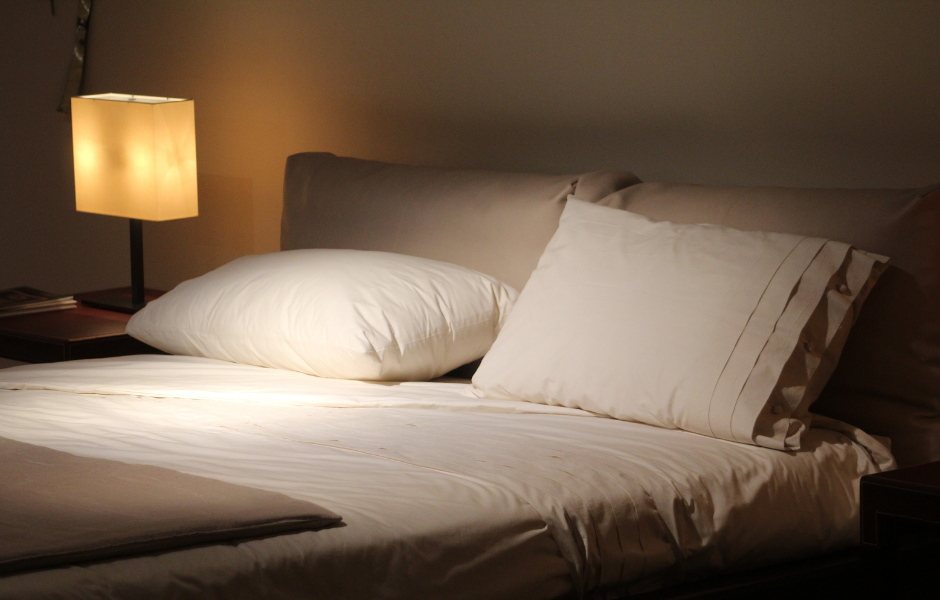10 Tips for Better Sleep

As we age, sleep becomes increasingly important for our overall health and well-being. However, many seniors struggle with getting a good night’s sleep. Factors such as changes in sleep patterns, health conditions, medication side effects, and lifestyle changes can all contribute to sleep disturbances.
In this article, we will discuss ten useful tips to help seniors improve the quality of their sleep and wake up feeling refreshed and rejuvenated.
#1 Stick to a Consistent Sleep Schedule
Maintaining a regular sleep schedule helps regulate our internal body clock. Seniors should aim to go to bed and wake up at the same time every day, even on weekends. This consistency reinforces the body’s natural sleep-wake cycle, making it easier to fall asleep and wake up naturally.
#2 Create a Relaxing Bedtime Routine
Establishing a relaxing bedtime routine can signal to your body that it’s time to wind down and prepare for sleep. Engage in soothing activities such as reading a book, listening to calming music, taking a warm bath, or practicing relaxation exercises like deep breathing or gentle stretching.
#3 Optimize Your Sleep Environment
Creating a comfortable sleep environment is crucial for better sleep. Ensure your bedroom is dark, quiet, and at a comfortable temperature. Consider using blackout curtains, earplugs, white noise machines, or a fan to block out external noise and disturbances. Additionally, invest in a supportive mattress and pillows that suit your individual sleep needs.
#4 Limit Daytime Napping
While a short power nap can be beneficial, excessive daytime napping can interfere with nighttime sleep. Try to limit daytime naps to no more than 30 minutes and avoid napping too close to your bedtime.
#5 Manage Stress and Anxiety
Stress and anxiety can significantly impact sleep quality. Practice stress management techniques such as meditation, deep breathing exercises, or engaging in hobbies that help you relax. If necessary, seek support from a mental health professional to address underlying stress or anxiety issues.
#6 Engage in Regular Physical Activity
Regular exercise has numerous benefits for overall health and sleep. Engaging in physical activity during the day can promote better sleep at night. Aim for at least 30 minutes of moderate intensity exercise most days of the week. However, avoid exercising too close to bedtime, as it may stimulate your body and make it harder to fall asleep.
#7 Watch Your Diet
Be mindful of your diet and its impact on sleep. Avoid consuming large meals, caffeine, nicotine, and alcohol close to bedtime. These substances can disrupt sleep patterns and make it harder to fall asleep or stay asleep throughout the night. Opt for a light, balanced meal in the evening and consider incorporating sleep-friendly foods like cherries, bananas, or herbal teas into your routine.
#8 Limit Screen Time Before Bed
The blue light emitted by electronic screens can interfere with your sleep cycle. Try to avoid using electronic devices such as smartphones, tablets, or computers at least one hour before bed. Instead, engage in relaxing activities that promote restfulness.
#9 Review Medications
Certain medications can have side effects that disrupt sleep. Talk to your Suvida provider about any potential sleep-disturbing effects of the medications you are taking. They may be able to adjust your dosage or recommend alternative options that minimize sleep disturbances.
#10 Seek Professional Help
If sleep problems persist despite implementing these tips, it may be beneficial to consult a healthcare professional specializing in sleep disorders. They can provide a comprehensive evaluation and suggest appropriate treatments to improve your sleep quality.
Getting enough quality sleep is essential for maintaining good health and well-being, especially for seniors. By implementing these ten tips, seniors can establish healthy sleep habits, create a conducive sleep environment, and optimize their overall sleep quality. Remember, a good night’s sleep is within reach, and with a little effort and consistency, you can wake up feeling refreshed and ready to tackle the day ahead.
Sources:
- National Sleep Foundation – https://www.sleepfoundation.org/
- Mayo Clinic – https://www.mayoclinic.org/
